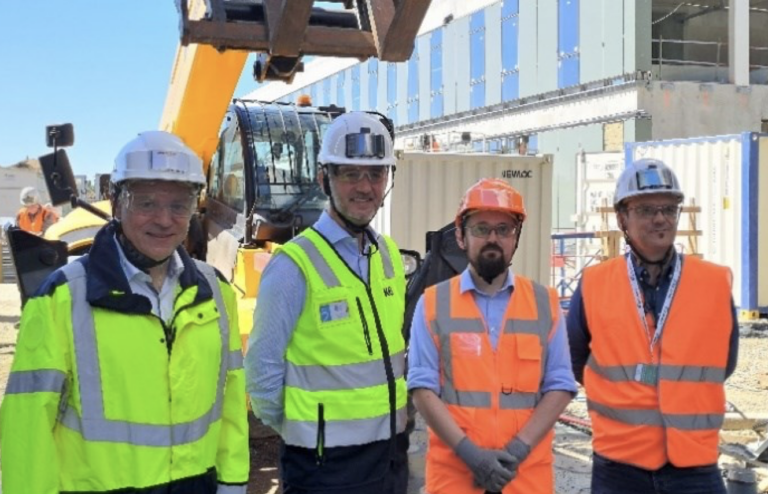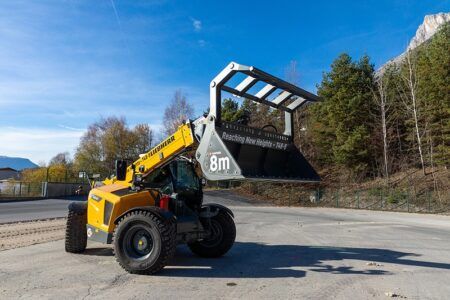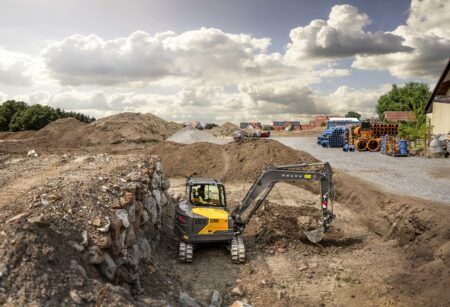Manitou Group has partnered with Bouygues Construction Matériel to operate its first retrofit telehandler.
Thanks to this partnership, an initial trial is underway on Europe’s largest hospital construction site in Nantes, with the active participation of Equans France, another subsidiary of the Bouygues group.
This marks the first time this type of combustion-engine equipment, converted to electric power, is being used in a real-world construction site scenario.
Initiated in early 2023, the partnership between Manitou Group and Kiloutou is entering its second phase with a testing period on the construction site of the new hospital of the Nantes University Hospital (CHU).
This phase will continue until early May, followed by four more months of testing at two other sites to assess various use cases. This crucial stage will allow the entities to gather valuable feedback from operators to evaluate the performance of the electrification kit. The criteria being analysed include safety, battery life, ergonomics and charging times.
“This testing phase, focused on user needs and expectations, is very important to validate this electrification kit. Initial feedback from the construction site is very encouraging, with performance largely comparable to a combustion engine, combined with a significant reduction in noise and zero carbon emissions. We still have a few months of testing to solidify our confidence, but the project is truly promising! We share the same conviction with the Kiloutou Group, and we confidently envision the potential of retrofitting, in line with our commitment to making the circular economy a cornerstone of our CSR strategy,” says Michel Denis, president & CEO of Manitou Group.
The initial results from the tests conducted at the Nantes University Hospital Centre construction site are very positive. Used daily by Equans France teams, the retrofit telehandler ensures the unloading of deliveries and the supply of materials on site.
Thanks to its 100% electric motorization, it avoids the need for diesel refuelling, thus limiting truck movements, simplifying site access logistics, and significantly reducing pollution risks.
Feedback gathered from operators expresses satisfaction with the charging method, driving comfort, sufficient battery life for this type of application, and performance similar to the combustion engine version.
For example, the equipment can operate for more than three hours without interruption. Charging time is also limited, with 25% of the battery recharged in just one hour (22kVA).
Retrofitting represents a sustainable and circular transition solution, achieving an average reduction of 40% in greenhouse gas emissions compared to the manufacturing and use of combustion engine equipment, and a 25% reduction in the total environmental score.
“For several years, the Kiloutou Group has been committed to contributing to the acceleration of the environmental transition. This retrofitting project,conducted with our partner Manitou Group, fully aligns with our roadmap to reduce our CO2 emissions, particularly indirect emissions, by approximately 25% by 2030. The full-scale test at the Nantes University Hospital Centre site will help advance the project, with a view to potentially considering a wider-scale deployment, if the test results continue to prove conclusive,” says Olivier Colleau, president of the Kiloutou Group.





